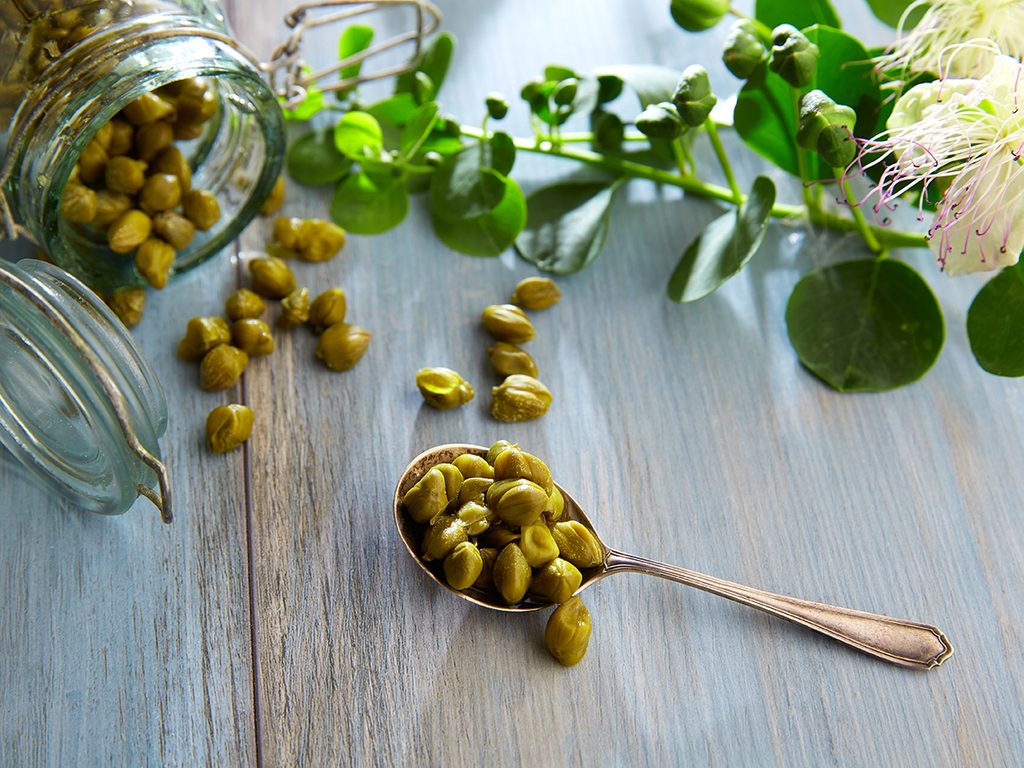3 Changes to Your Diet That Could Benefit Your Brain

Studies show adding flavinoids, pickled capers, and omega 3s to your diet can give your brain a boost.
Your brain is always working, despite evidence to the contrary (where did I put my keys again?). And how you fuel it directly affects its function. Eat high-quality foods that contain lots of vitamins, minerals, and antioxidants, and you’ll nourish and protect your brain from oxidative stress (the waste, or free radicals, produced when the body uses oxygen, which can damage cells). Canada’s recently revamped food guide, which put an emphasis on eating more fruits and vegetables, has been lauded for its potential benefits to brain health (not to mention mental health benefits). Need more convincing? The findings from these three recent studies are a good reminder why you should always keep nutrition on the mind.
Eat more flavonoids
A new study published in the American Journal of Clinical Nutrition followed the eating habits of 600 Americans over the course of 20 years and showed that the people who ate more foods high in flavinoids had a 40 to 60 percent lower risk of developing Alzheimer disease and related dementias.
What are flavonoids?
Flavonoids are a diverse group of phytonutrients (plant chemicals) found in almost all fruits and vegetables. They’re associated with all kinds of excellent activity, including skin protection, brain function, blood-sugar and blood-pressure regulation, plus antioxidant and anti-inflammatory action. For this study, the intake of one type of flavonoid, anthocyanins, which are abundant in blueberries, strawberries and red wine, had the strongest association with lowered risk of dementia. Apples, pears, oranges, bananas and tea also contributed.
The best part? A little goes a long way. The monthly average intake from the healthiest cohort was about seven half-cup servings of strawberries or blueberries, eight apples or pears, and 17 cups of tea.
(Here are other healthy habits that’ll boost your brain health.)
Dip into those pickled capers
Researchers from the School of Medicine at the University of California, Irvine, published a new study that shows eating pickled capers is good for brain and heart health. They’re the richest known natural source of a bioflavonoid called quercetin, which regulates our potassium ion channels—their dysfunction is linked to diabetes, cardiac arrhythmia, and epilepsy. Quercetin can also directly regulate proteins required for bodily processes such as heartbeat, thought, muscular contraction, and normal functioning of the thyroid, pancreas and gastrointestinal tract. Not bad work for an inconspicuous condiment.
Tap the protective power of fish
It irritates our eyes and throats, and damages our lungs, but air pollution also causes our brains to shrink and affects our memory and cognitive power as we age. A new study published in Neurology shows women who eat a diet high in omega 3s from fish can better withstand the detriment.
Next, learn the habits you should start today to keep your brain healthy at 80.




